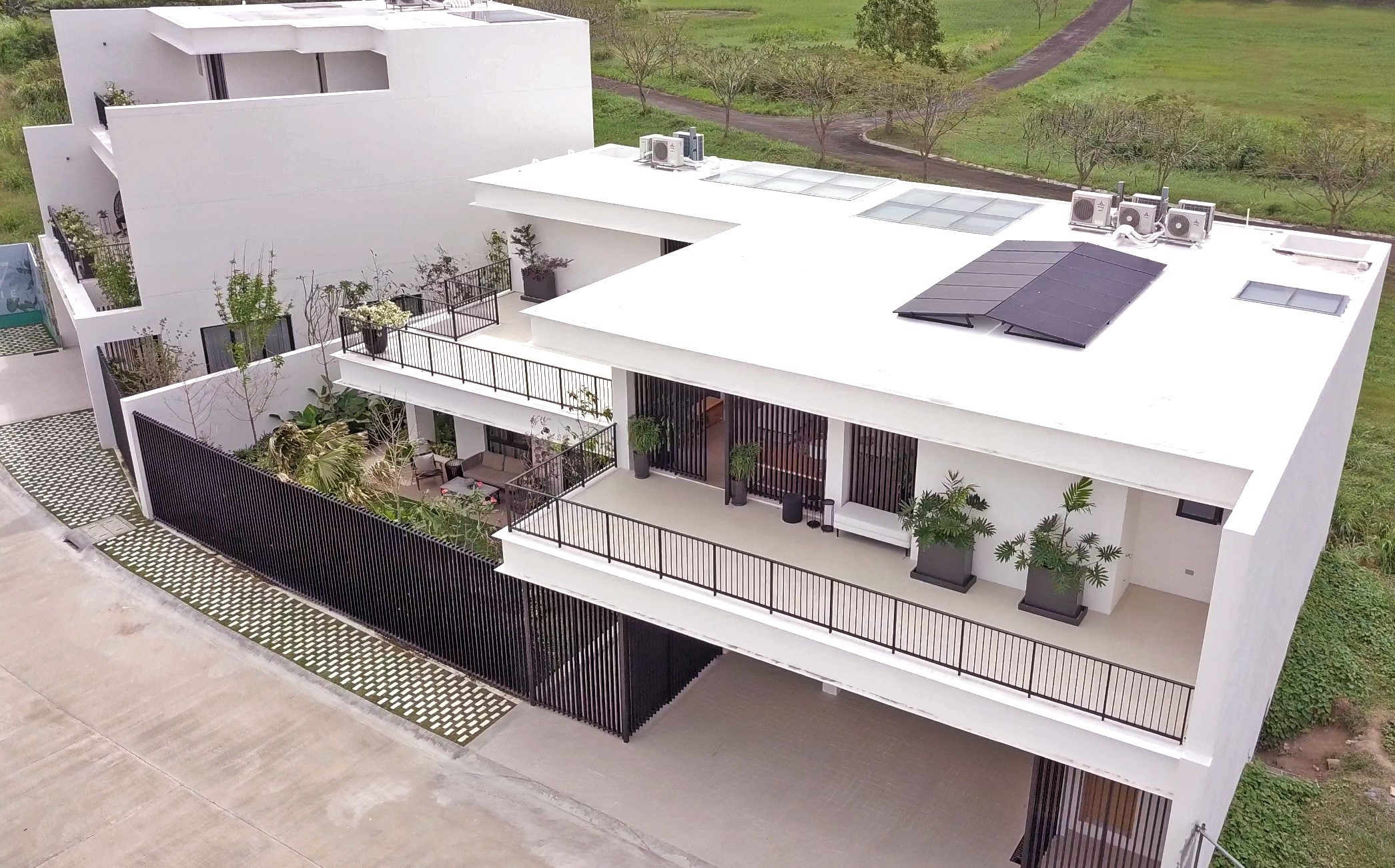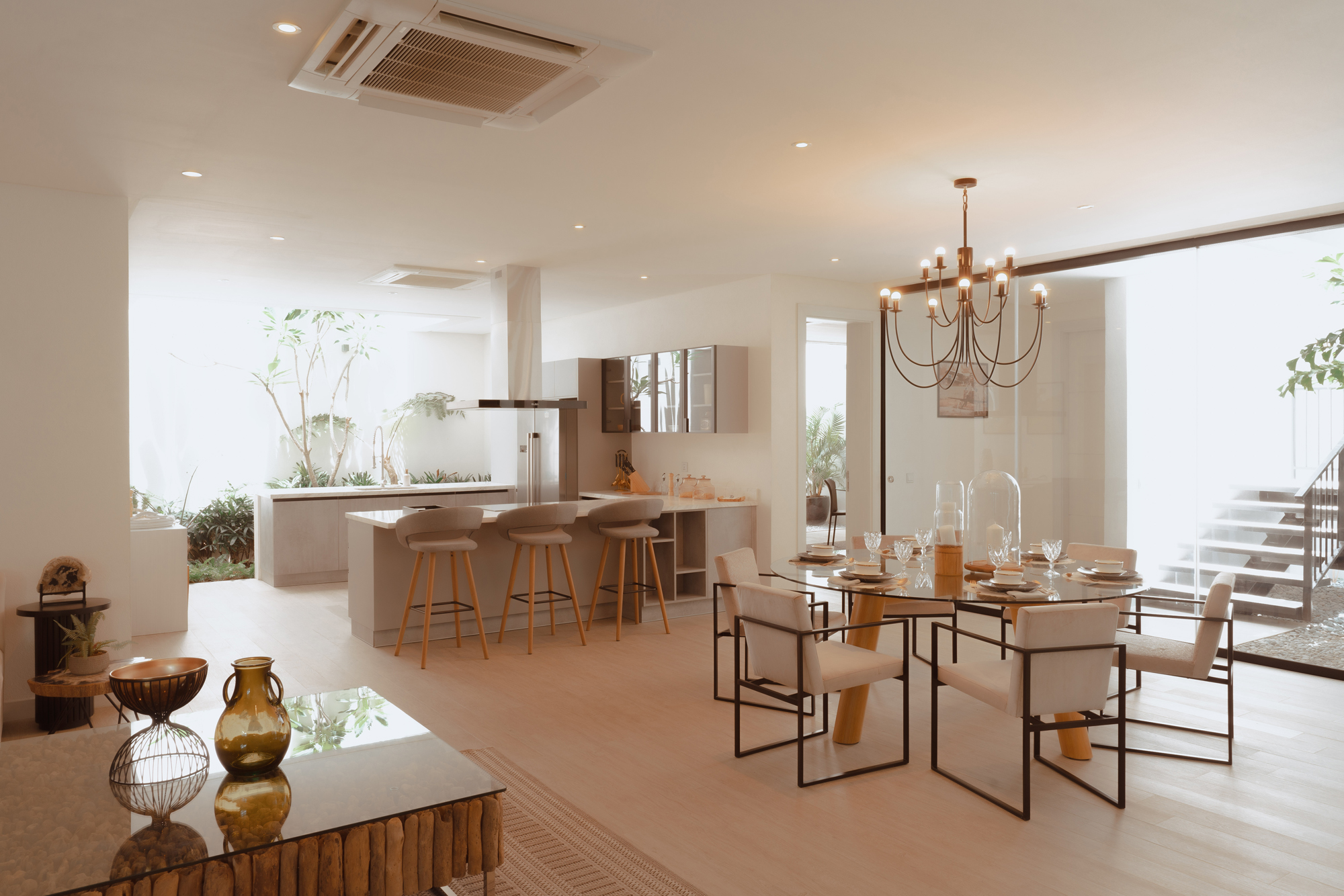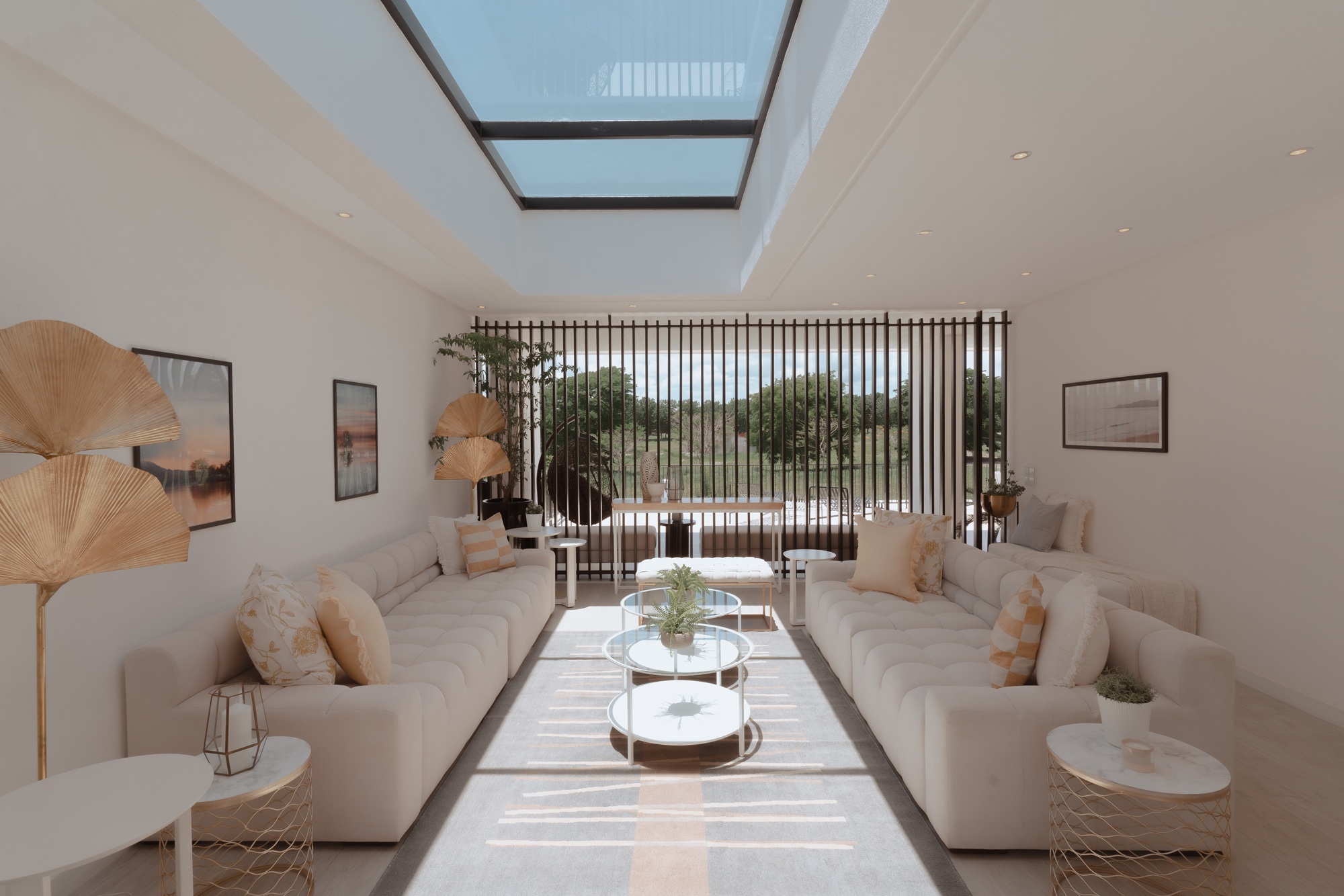The name Victor B. Consunji is not unfamiliar to many. The surname Consunji, deeply rooted in our country's history, is associated with significant contributions to our infrastructure, thanks to his pioneering grandfather, David Consunji. Victor's father, Isidro Consunji, has also made a name for himself in the property industry, expanding the family's footprint through DMCI Holdings, Inc.

Instead of merely coasting on the crest of his family's success, Victor chose to blaze his own trail and start building his legacy. In 2001, he founded Victor Consunji Development Corp. (VCDC), where he serves as the CEO. Victor's vision for VCDC was to focus on smaller, yet top-quality projects, while emphasizing sustainability.
Deliberately carving out VCDC's unique path, Victor made conscious choices to develop less dense projects with premium value, all while ensuring they uphold the same high-quality standards his family's company is known for. VCDC's commitment to sustainability and practicality became its hallmark, as its projects embraced a people-centric approach, taking note of residents' needs and lifestyles in the spaces they created.
Through projects such as M Residences (located in QC and Taguig), Vie at Southern Plains (in Calamba, Laguna), VCDC continued to evolve and learn from its experiences. "We have a strong emphasis on efficient design, minimizing energy consumption and carbon footprints, and providing healthier living environments," Victor says. "Even as a young company, we are proud to contribute to uplifting the building standards in the industry."

In a special 10+1 Q&A with MANILA BULLETIN PROPERTY LIVING, Victor shares valuable insights into his journey and aspirations:
1) What lessons have you learned from your father? From your grandfather?
Whenever someone asks me about my family, especially my dad and my grandfather, I say that they are part of nation-building. At the time that my grandfather had started a construction company, the industry was very much in its infancy in the Philippines; and the technology and the quality for good concrete — which is taken for granted nowadays — simply did not exist. He (grandfather) was actually a pillar in building and helping develop high-strength concrete, which allowed us to be where we are today.
The lessons have always been this — if you have to do something, identify a need. This needs to be a legitimate need, not a fad. Try to add some value by where both sides of the table come out ahead. I learned from them further that we should not be in the business at the expense of others. We have to somehow do business while providing livelihood and contributing to the nation.
2) What made you decide to put up your own company?
I was in University abroad when I decided to tackle two career paths. One career path was construction. Although my family had their own well established construction company, I felt a little awkward jumping in there and not knowing what you're talking about. So, I ventured out on my own, and I wanted to start at the basics. We did renovations like roofing, repairs, etc. for residential homes. Then we started getting bigger. Then we started building. One house here, several houses there, and so on.
It got to the point where there was a shift, where I had the opportunity to become more than just a contractor. At that time, because most of our experience was in construction, I witnessed the rise of popularity of condominiums. Real estate prices were increasing. I grew up in a house and lot, so I realized that for a certain set of Filipinos, they would never be able to live the way they grew up because the only choices were very expensive condominiums or very distant homes. So, one of the things I tried to set out was to be a developer for myself, to provide a product that I would want to live in. In fact, to this day, I do live in one of VCDC's developments.
3) Was it a conscious effort at the start of VCDC to become a boutique developer and to highlight sustainability?
First, I saw a market that we could approach and that was untapped. On the sustainability component, it turns out that sustainability happens when you make the house convenient to maintain and convenient to live in. For example, if you can get a house that doesn't require as much air conditioning, you also reduce electrical footprint and so forth and so on. Right then at the same time, you also have this benefit of people breathing fresh air. You also get additional health benefits since ventilated homes means your spaces will not breed mold or bacteria and are generally easy to clean, which in the long run gives you and your family a better quality of life.
4) Can you tell us about your flagship project, the M Residences... How was it conceptualized?
I'm trying to sell you a home – a primary home. I'm trying to sell you safety and security, a place for your kids to run around. Basically, I'm selling you a lifestyle. So, at least for me, the idea of having a theme was irrelevant. We're selling you a home in the city, it's convenient and close to where you work and where your kids go to school. And that home, in this case, is M Residences located in different parts of Metro Manila.
In terms of design, M Residences offers units where buyers can imprint their personality through the design. It looks nice on its own, but the units are also an effective blank canvas. Again, our primary objective is to sell you a home, not a preconceived idea of what your home should be.
5) At the start, was it easy to convince your market?
Of course, everybody has certain expectations. Our market is not the easiest market to be in, especially because we allow customizations. We provide guidelines, but it's a customizable home. And that means extra complexity for us, right in building it, because essentially no two homes are exactly alike. They're always custom to a specific person, and that person has expectations which we have to cater to. As much as possible, home buyers need to meet eye-to-eye with us regarding the standards that we have set.

6) How's the Vie project? How is it different from M Residences?
Between Vie and M Residences, the DNA is the same. We allow buyers to customize the homes and the layouts. What's different with Vie is that it's farther away and it's not in the city. You do not have the convenience of stepping out and walking down to the grocery. So, we designed it to be a little bit like a staycation home. There is more space, more room to move around.
7) VCDC's market is a premium discerning one; do you have plans to tap into other segments or markets?
To be clear, we didn't actually specifically target the premium market, or the high-end, luxury homebuyers. What we're trying to target are young professionals, business owners, people who are responsible and work hard for their money. They have every right to enjoy the fruits of their labor and they need to get the right value for what they pay for.
We don't provide products specifically for a target market, but if it turns out to be a particularly discerning one, then so be it; but it's not by design.

8) Are you optimistic about the property market right now?
For me, real estate is always an optimistic market. There's always going to be an opportunity in real estate. For one, we have a young and growing population compared to more mature markets like Japan, the US, or China where you don't hear a lot of news about growing families. The problem isn't if there's going to be an opportunity in the market; the problem is that there are all the other factors around right now that are squeezing the opportunity.
While there's a sense of normalcy after the pandemic, there's also a strong financial insecurity. People previously who had no problems getting credit or loans cannot do so right now. There are also interest rates that have increased significantly. All of these things increase uncertainty and reduce people's optimism to purchase a new house.
9) What makes you excited in this profession or in your business?
I am an outdoorsy kind of guy. I love building things. I literally build things with my hands. I've always done it even as a kid. It's not about building for me. It's putting together something that I found that now has a new purpose for others. This industry has given me the opportunity to essentially build homes. What keeps me excited is the design, the innovation, even the challenge, and ultimately, seeing people live in what we have built.
10) In more than a decade of leading VCDC, what lessons have you learned? How would you envision VCDC to be in the coming 10 years?
It is important to listen and to be humble. It is also important to learn and remind myself over and over again to go back to the drawing board, have some fresh eyes, remove preconceptions, and there and then see the opportunities, and to work hard to reach your goals.
In a decade, I still envision us being in the real estate industry. I would have hoped that by that time, I would have identified other gaps in the industry. I hope that our products continue to provide lasting happiness and satisfaction.
PLUS ONE: On a personal note, what is your message to your son regarding your contribution to the world you are building with VCDC?
I would tell him this – it's one thing to do things for yourself and it's one thing to want to be happy. But true happiness comes from having a purpose. And you've got to find your purpose. This is one of the many pieces of advice that my father and grandfather have imparted to me.